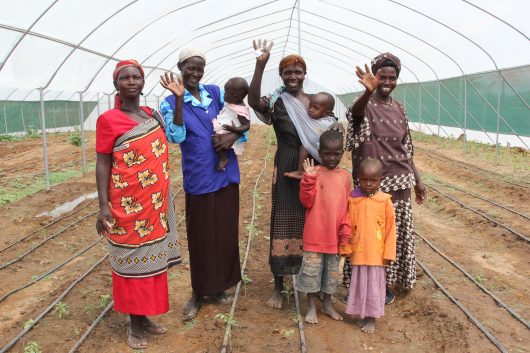Teaching Self-Reliance Worldwide

The ultimate goal of charitable aid for the poor should be to help recipients become self-reliant. Teaching self-reliance worldwide means that individuals will no longer need to depend on outside sources to live without the immediate threat of disease and starvation. Achieving self-reliance leads to stability and sustainability.
Many programs try to accomplish this vision by teaching families valuable skills such as efficient farming techniques and literacy. Evidence has shown that these methods are less costly and have a more permanent influence on the communities where they are implemented.
The Church of Jesus Christ of Latter Day Saints teaches self-reliance worldwide. It attempts to help struggling families achieve this goal by teaching them effective ways to seek employment, manage their time and money, start small businesses and develop leadership qualities.
Volunteers travel to countries in Latin America, Africa, Asia, and Europe to teach free classes and help their students achieve personal goals. These volunteers range from college students to elderly couples, each of them donating up to two years of their lives to support these struggling communities.
The success stories of this program are as diverse as its students. One participant from Ghana, Irene, is a single mother of four children. She uses an old hand cranked sewing machine as her primary source of income. Carrying the sewing machine on her head, Irene goes from house to house and offers to sew traditional Ghanian dresses.
Irene says the classes help her learn how to network and communicate with customers. It has also helped her learn new business strategies, such as going to a busier public place to advertise her services. Most importantly, the classes have taught her how to manage her money and set aside amounts for future growth.
Although she has not even finished the program, Irene has said that her income has already grown noticeably. The economic benefits of teaching self-reliance worldwide could be staggering.
Another student, Susy, uses a small van to transport neighborhood children to and from school. Her business is still small, but LDS’ Self-Reliance has opened her eyes to many aspects of business management, such as record keeping and improving capital. Susy now has plans to work toward buying a larger van to transport more children. She also hopes to expand her business to include day care services.
The employment techniques offered in the Self Reliance classes have also proved incredibly useful. One student, Rafael, had been unemployed for seven months before setting foot in the Self Reliance Center. Volunteers taught him the importance of accruing multiple sources of information, making as many contacts as possible and setting up interviews.
Within six days, Rafael had found a job. “It was a miracle,” he says in an interview produced by the Self Reliance program. “My wife is very happy… I can now provide for our home and our children.”
– Emiliano Perez
Photo: Wikipedia
